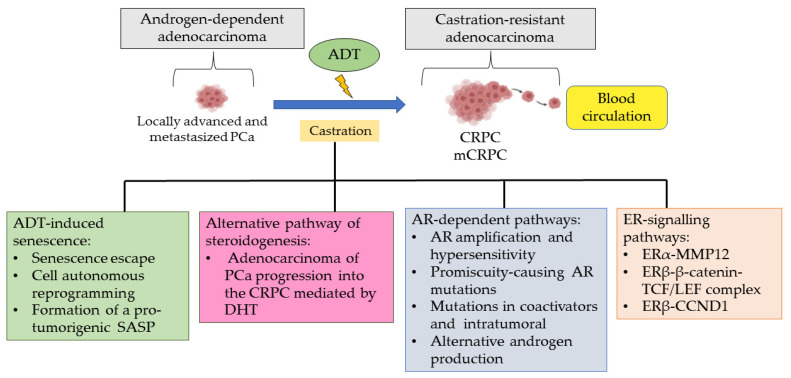Figure 2.
PCa development leading to CRPC progression after ADT treatment via AR-dependent alternative pathway of steroidogenesis and an ER-signalling pathway. The possible mechanisms of PCa leading to CRPC after ADT treatment could be due to the androgen-dependent pathway, including AR amplification and hypersensitivity, AR mutation, and AR co-regulation (co-activation). Next, the alternative pathway of steroidogenesis will also be the potential mechanism of PCa progression to CRPC. ADT-induced senescence, including senescence escape, cell-autonomous reprogramming, and the formation of a pro-tumorigenic SASP. Abbreviations: PCa, prostate cancer; ADT, androgen-deprivation therapy; AR, androgen receptor; SASP, senescence-associated secretory phenotype; CRPC, castration-resistant prostate cancer; mCRPC, metastatic castration-resistant prostate cancer; ERα, estrogen receptor alpha; Erβ, estrogen receptor beta; MMP12, matrix metalloproteinase 12; TCF/LEF, T cell factor/lymphoid enhancer factor transcription factors; β-catenin, beta-catenin; CCND1, cyclin D1.

